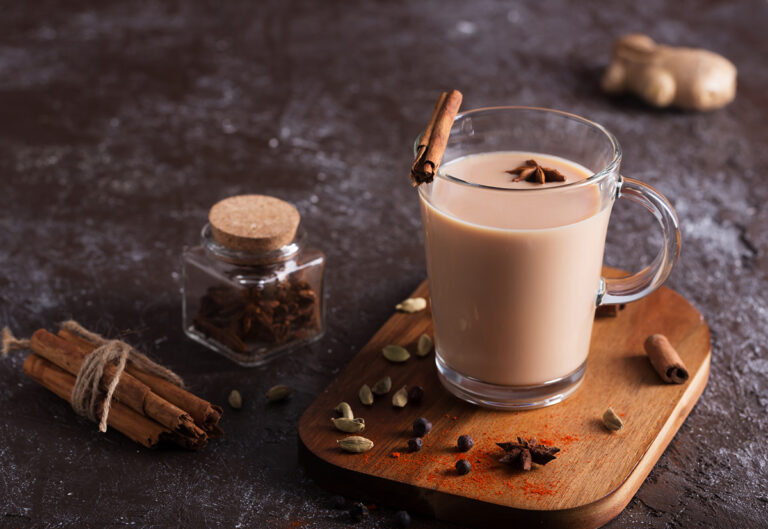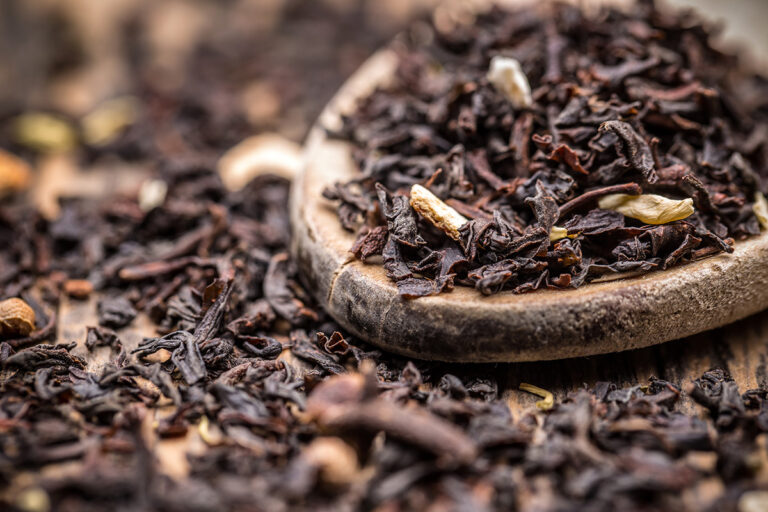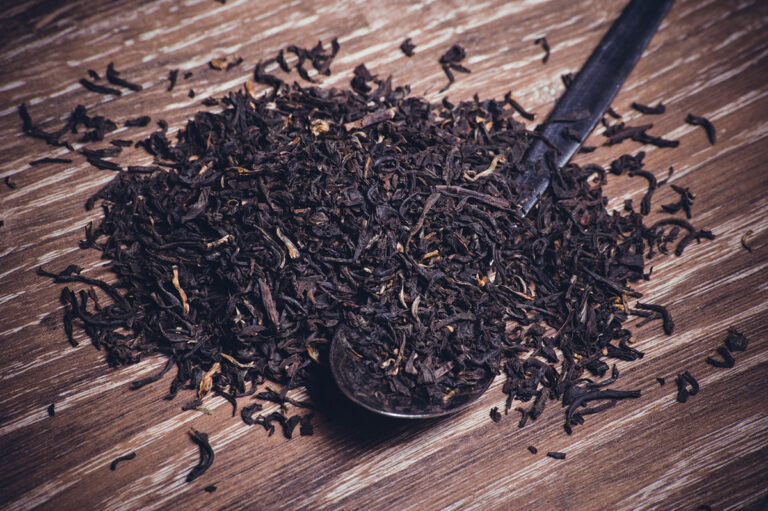What Does Assam Tea Taste Like?
Assam tea has captured the hearts and taste buds of tea enthusiasts around the world.
In this article, we’ll explore the distinct flavors of this popular black tea, discuss its bitterness, and compare it to other black teas. We’ll also provide tips on how to make Assam tea taste even better, and answer some frequently asked questions.

What Does Assam Tea Taste Like?
Assam tea, named after the region in India where it is grown, has a unique and robust flavor profile. Its taste is characterized by a strong, malty, and full-bodied flavor, often accompanied by a rich, dark color. This tea also has a natural sweetness and a slight hint of fruitiness that balances out its boldness.
Is Assam Tea Bitter?
Assam tea can be bitter, especially if it is over-steeped or brewed at a high temperature. The bitterness comes from tannins, natural compounds present in tea leaves that contribute to its astringency. However, the bitterness can be controlled by adjusting the steeping time and temperature, allowing you to enjoy the tea’s full flavor without the overpowering taste.
How to Make Assam Tea Taste Better?
To make Assam tea taste better and reduce its bitterness, follow these detailed steps:
- Choose high-quality tea: Opt for loose-leaf Assam tea rather than tea bags, as loose-leaf tea usually has better quality and a more complex flavor.
- Use fresh water: Start with fresh, cold water, preferably filtered or spring water, as it can greatly impact the taste of your tea.
- Heat the water correctly: Bring the water to a temperature of 90-95°C (194-203°F). Overheating the water can result in a bitter taste, while underheating may not extract the full flavor from the tea leaves.
- Measure the tea leaves: Use approximately one teaspoon of loose-leaf tea per 8-ounce cup of water. Adjust the amount according to your desired strength.
- Steep the tea: Steep the tea for 3-4 minutes. Over-steeping can cause bitterness, so keeping an eye on the time is essential. If you prefer a stronger tea, use more tea leaves instead of extending the steeping time.
- Strain the tea leaves: After steeping, strain the tea leaves to avoid any bitterness from over-extracted flavors.
- Add sweeteners: Experiment with sweeteners like honey, sugar, or maple syrup to enhance the natural sweetness of Assam tea and balance its bold flavor.
- Enhance with spices: Consider adding spices like cinnamon, cardamom, or ginger, which can complement the flavor of Assam tea and add an extra layer of complexity.
- Adjust to taste: If the tea is too strong or bitter, add more hot water to dilute it. Conversely, if it’s too weak, use more tea leaves or slightly increase the steeping time in future brews.
Does Assam Tea Taste Like Any Other Black Tea?
While Assam tea shares some characteristics with other black teas, it has a distinct flavor that sets it apart. Its strong, malty flavor and natural sweetness differentiate it from other varieties. Assam tea’s taste is often compared to that of Ceylon and Darjeeling teas, but its boldness and richness make it unique.
Is Assam the Strongest Black Tea?
Assam tea is known for its robust, full-bodied flavor, and is often considered the strongest black tea. However, other black teas like Ceylon, Darjeeling, and Keemun can also be quite strong, depending on how they are prepared.
What Is the Flavor of Assam Milk Tea?
Assam milk tea has a rich, creamy, and smooth flavor due to the combination of Assam tea and milk. The strong, malty, and full-bodied taste of Assam tea is complemented and softened by the milk, resulting in a well-balanced beverage. The milk enhances the tea’s natural sweetness, creating a comforting and satisfying drink.
Although Assam milk tea does not typically include spices like chai, you can still add spices such as cinnamon, cardamom, or ginger to enhance its flavor further if desired.
Should I Add Milk to Assam Tea?
Adding milk to Assam tea is a personal preference. The strong, malty flavor of Assam tea stands up well to milk, which can complement and soften its taste. Adding milk can be a good option if you prefer a milder tea or want to tone down the bitterness. However, if you enjoy the boldness and complexity of Assam tea, you may prefer to drink it without milk.
Final Thoughts
Assam tea’s unique flavor profile, with its strong, malty taste and natural sweetness, has made it a favorite among tea lovers worldwide. Adjusting the brewing process allows you to control the tea’s bitterness and enjoy a delicious cup tailored to your preferences.
Whether you prefer it with milk and spices or enjoy its bold taste on its own, Assam tea is a versatile and satisfying beverage that you can savor in various ways.
FAQ
Is Assam Tea Like Earl Grey?
Assam tea and Earl Grey are both black teas, but they have different flavor profiles. Assam tea is known for its strong, malty taste, while Earl Grey is flavored with bergamot oil, giving it a citrusy and floral aroma. While they share a base of black tea, their flavors and aromas set them apart.
Is Assam Tea Like English Breakfast?
Assam tea is often used as a component of English Breakfast tea blends due to its robust and full-bodied flavor. English Breakfast typically combines Assam with other strong black teas like Ceylon and Kenyan teas, creating a bold and rich beverage perfect for starting the day.
While Assam tea contributes to the overall taste of English Breakfast, they are not the same.
Which Tastes Better, Assam or Ceylon?
The preference between Assam and Ceylon tea is subjective and depends on individual tastes. Assam tea is known for its strong, malty flavor and natural sweetness, while Ceylon tea has a more delicate, bright, and citrusy flavor.
If you prefer a bold and full-bodied tea, you may lean towards Assam. On the other hand, if you enjoy a lighter, more refreshing taste, Ceylon might be the better option for you.
The best way to determine your preference is to try both and compare their flavors.



